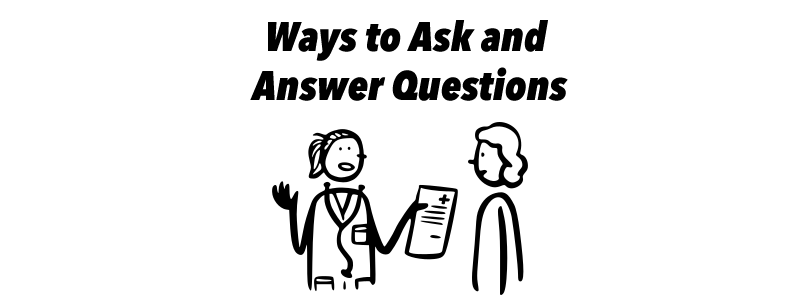In Chinese, there are several ways to ask and answer questions, and we’ll discuss the two most basic ones in this article.
Question Structure
S + V + O + 嗎/吗 ma
This is the most simple and common yes-no question asking whether the person does it.
你吃飯嗎?你吃饭吗?
Do you eat? (This not a common question.)
你喝咖啡嗎?你喝咖啡吗?
Do you drink coffee?
這是垃圾嗎?这是垃圾吗?
Is this garbage?
你有貓嗎?你有猫吗?
Do you have a cat?
你喜歡你的中文老師嗎?你喜欢你的汉语老师吗?
Do you like your Chinese teacher?
他要去北京嗎?他要去北京吗?
Is he going to Beijing?
S + V + Neg + V + O
This is another very simple and common yes-no question, asking if the person does it. Be careful, do not add 吗 ma in this structure.
你吃不吃飯?你吃不吃饭?
Do you eat (rice or a meal)?
這裡賣不賣咖啡?这儿卖不卖咖啡?
Do they sell coffee here?
你有沒有錢?你有没有钱?
Do you have money?
他是不是英國人?他是不是英国人?
Is he British?
你喜(歡)不喜歡你的中文老師?你喜(欢)不喜欢你的汉语老师?
Do you like your Chinese teacher?
(When the verb is a two-syllable word, it is okay to drop the second syllable.)
他要不要去北京?他要不要去北京?
Is he going to Beijing?
Answering Structure
In Chinese, the concept of “yes” and “no” is expressed differently. Instead of using a single word for “yes” or “no,” the Chinese language typically involves repeating the main verb in the question to affirm or negate a statement.
Affirmative Answers
For an affirmative answer, we usually reply with a short one.
這裡賣不賣咖啡?这儿卖不卖咖啡?
Do they sell coffee here?
Ans:賣卖
Yes
你有貓嗎?你有猫吗?
Do you have a cat?
Ans:有有
Yes
他要不要去北京?他要不要去北京?
Is he going to Beijing?
Ans:要要
Yes
Negative Answers
When it comes to a negative answer, we tend to reply with a brief response and then provide the correct statement.
他是不是英國人?他是不是英国人?
Is he British?
Ans:不是,他是美國人不是,他是美国人
No, he is American.
你喜歡你的中文老師嗎?你喜欢你的汉语老师吗?
Do you like your Chinese teacher?
Ans:不喜歡,我喜歡我的韓文老師不喜欢,我喜欢我的韩文老师
No, I like my Korean teacher.
Ans:不喜歡,我覺得他很煩不喜欢,我觉得他很烦
No, I think he is annoying.
他要不要去北京?他要不要去北京?
Is he going to Beijing?
Ans:不要,他要在家不要,他要在家
No, he is going to stay at home.
Other ways to ask question in Chinese:


